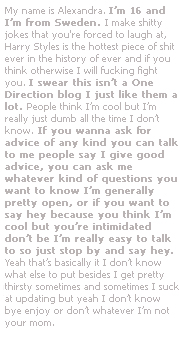Helping a love one with an eating disorder
If you notice the warning signs of an eating disorder in a friend or family member, you may be hesitant to say anything out of fear that you're mistaken, or that you'll say the wrong thing, or you might alienate the person. Although it's undeniably difficult to bring up such a delicate subject, don't let these worries keep you from voicing valid concerns.
People with eating disorders are often afraid to ask for help. Some are struggling just as much as you are to find a way to start a conversation about their problem, while others have such low self-esteem they simply don't feel that they deserve any help. Eating disorders will only get worse without treatment, and the physical and emotional damage can be severe. The sooner you start to help a loved one, the better their chances of recovery.
Talking to a friend or family member about their eating disorder
When approaching a loved one about an eating disorder, it's important to communicate your concerns in a loving and non-confrontational way. Pick a time when you can speak to the person in private, then explain why you're concerned. Try to remain positive, calm, focused, and respectful during conversations.
Your loved one may deny having an eating disorder or may become angry and defensive. However, it's important you don't give up. It may take some time before your loved one is willing to open up and admit to having a problem. Still, as difficult as it is to know that someone you love has an eating disorder, you cannot force someone to change. Unless it’s a young child, the decision to seek recovery has to come from them. But you can help by making it clear that you’ll continue to be there for him or her, with your compassion and support, whenever they’re ready to tackle the problem.
How to talk to someone about their eating disorder
Be careful to avoid critical or accusatory statements, as this will only bring out your friend’s or family member’s defenses. Instead, focus on the specific behaviors that worry you.
- Focus on feelings and relationships, not on weight and food. Share your memories of specific times when you felt concerned about the person’s eating behavior. Explain that you think these things may indicate that there could be a problem that needs professional help.
- Tell them you are concerned about their health, but respect their privacy. Eating disorders are often a cry for help, and the individual will appreciate knowing that you are concerned.
- Do not comment on how they look. The person is already too aware of their body. Even if you are trying to compliment them, comments about weight or appearance only reinforce their obsession with body image and weight.
- Make sure you do not convey any fat prejudice, or reinforce their desire to be thin. If they say they feel fat or want to lose weight, don’t say “You’re not fat.” Instead, suggest they explore their fears about being fat, and what they think they can achieve by being thin.
- Avoid power struggles about eating. Do not demand that they change. Do not criticize their eating habits. People with eating disorders are trying to be in control. They don’t feel in control of their life. Trying to trick or force them to eat can make things worse.
- Avoid placing shame, blame, or guilt on the person regarding their actions or attitudes. Do not use accusatory “you” statements like, “You just need to eat.” Or, “You are acting irresponsibly.” Instead, use “I” statements. For example: “I’m concerned about you because you refuse to eat breakfast or lunch.” Or, “It makes me afraid to hear you vomiting.”
- Avoid giving simple solutions. For example, “If you’d just stop, then everything would be fine!”
 Jenny
Jenny
 amanda
amanda

 15:22:57
15:22:57






